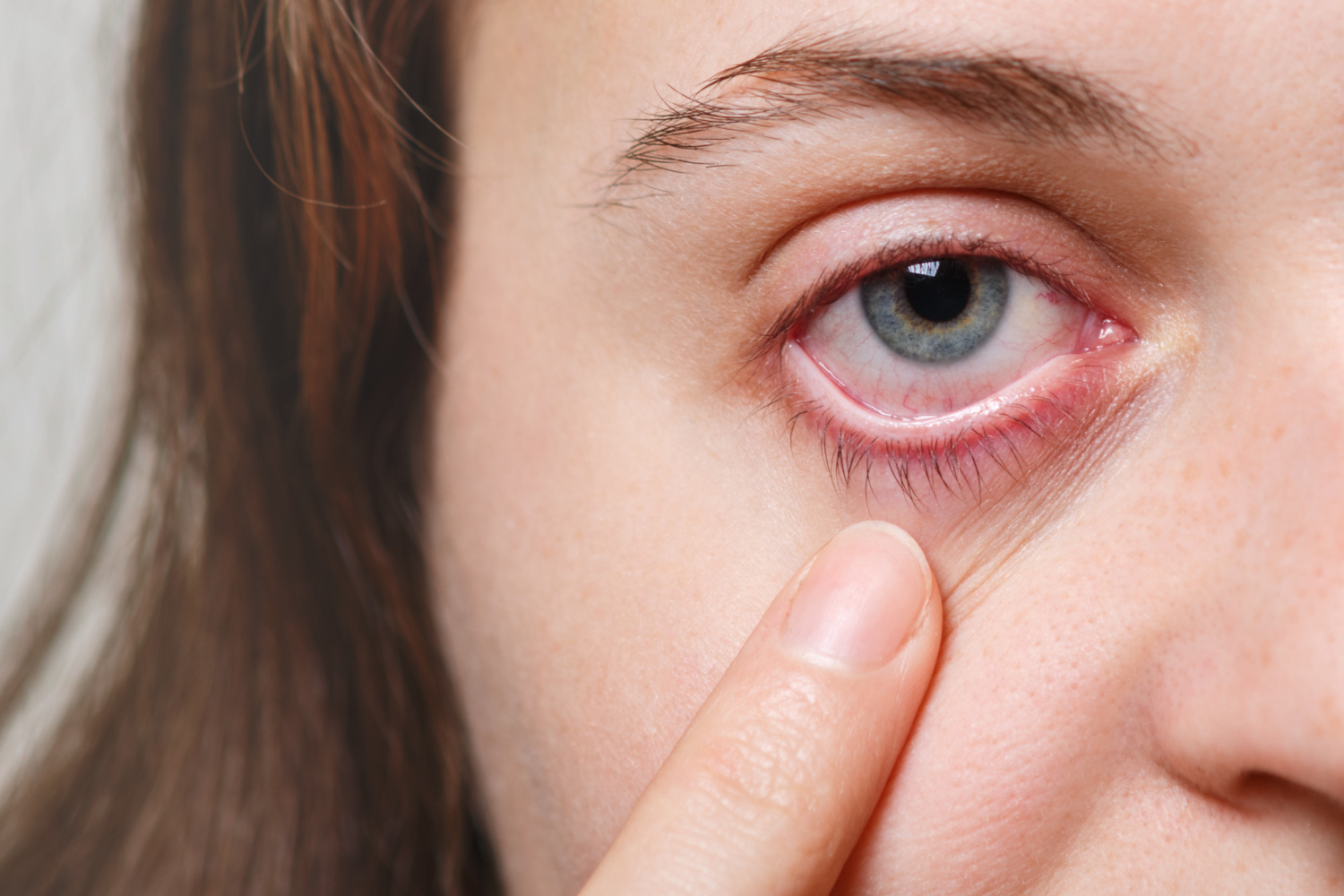
7 Contact Lens Problems You Should Never Ignore
Contact lenses have become a popular choice for people seeking a convenient and effective way to correct their vision. While they offer many advantages, such as freedom from glasses and a wider field of vision, contact lenses can also present problems if not worn or cared for properly. Neglecting proper maintenance, wearing lenses for too long, or using the wrong cleaning solutions can lead to several complications.
These issues can range from mild irritation to more serious eye health concerns. Understanding contact lens problems and solutions, their causes, and how to prevent them can help you maintain clear, comfortable vision and protect your eye health.
Some of the most common contact lens problems and solutions include:
- Redness from contact lenses causes: Contact lenses, especially when worn for extended periods, can irritate the delicate tissues of the eye. This irritation may cause redness, making your eyes appear bloodshot. This issue is often the result of insufficient oxygen reaching the cornea, which is a common problem for people who wear contact lenses for too long.
- Discomfort from wearing contact lenses: Another common issue is discomfort, which may present as a burning, stinging, or gritty feeling in the eyes. This can happen when the lenses are not properly hydrated, or if there is a build-up of protein deposits or dirt on the lenses. Discomfort can also occur if the lenses are not fitted correctly or are of poor quality.
- How to prevent contact lens infections: One of the most serious risks associated with wearing contact lenses is the potential for eye infections. Bacterial or fungal infections can develop if the lenses are not cleaned properly or if they are worn beyond the recommended time.
online pharmacy buy clomid with best prices today in the USA
Symptoms of infection include pain, redness, discharge, and in severe cases, vision loss.
- Cloudy contact lenses affecting vision: Over time, contact lenses can become cloudy, which can impair your vision. This may be due to the accumulation of protein and other debris, or it could indicate that the lenses have been damaged. Cloudy lenses are particularly dangerous because they not only affect your ability to see clearly, but they also increase the risk of infection if not replaced in a timely manner.
- Blurred vision from contact lenses: Although contact lenses are meant to improve vision, they can sometimes cause problems such as blurred vision, double vision, or halos around lights. This can happen if the lenses are not fitting properly, if they are dirty, or if the prescription is no longer accurate. Sometimes, underlying conditions like dry eye syndrome or astigmatism can also contribute to these issues.
If you experience any of these problems, it is important to see your eye doctor right away. Ignoring these symptoms can lead to more serious complications, including permanent vision loss. Early detection and proper treatment are key to managing contact lens-related issues effectively.
Here are some helpful tips to prevent common contact lens problems and solutions:
- Proper hand hygiene before handling contact lenses: It is essential to wash your hands thoroughly with soap and water before touching your contact lenses. Dirty hands can transfer bacteria, oils, and dirt onto your lenses, increasing the risk of eye infections.
buy nolvadex online https://www.phamatech.com/wp-content/uploads/2024/08/jpg/nolvadex.html no prescription pharmacy
Always dry your hands with a clean towel to avoid contaminating your lenses with any leftover moisture.
- Best solutions to clean and disinfect contact lenses: Make sure to use the appropriate cleaning and disinfecting solution recommended by your eye doctor. Avoid using water or saliva to clean your lenses, as these can introduce harmful bacteria into your eyes. Regular cleaning helps remove protein deposits and other contaminants that could lead to eye irritation or infections.
buy tirzepatide online https://www.phamatech.com/wp-content/uploads/2024/08/jpg/tirzepatide.html no prescription pharmacy
- Changing contact lenses regularly for eye health: Always follow the recommended schedule for replacing your contact lenses. Some lenses are designed for daily use, while others are intended for extended wear. Overusing lenses beyond their recommended replacement schedule can lead to discomfort, reduced oxygen flow to the eyes, and increased risk of infection.
online pharmacy buy flagyl with best prices today in the USA
- Avoid wearing contact lenses beyond recommended hours: It’s crucial to respect the wearing time advised by your eye doctor. Wearing contact lenses too long, especially overnight, can lead to dryness, irritation, and even an increased risk of developing corneal ulcers. If you wear your lenses for longer than advised, you may also experience blurry vision or pain.
- Importance of regular eye checkups for contact lens wearers: Even if you’re not experiencing any problems, regular eye checkups are essential for maintaining eye health. During these exams, your eye doctor can ensure that your prescription is up to date, check the fit of your lenses, and detect any potential issues early on. Regular checkups can also help prevent long-term complications associated with contact lens use.
By following these simple but effective tips, you can reduce the likelihood of contact lens-related issues and enjoy clear, comfortable vision. Proper care and maintenance of your contact lenses will help keep your eyes healthy and your vision sharp.
Remember, your eyes are delicate and precious. If you experience any discomfort, vision changes, or pain while wearing your lenses, seek professional advice immediately. Your eye doctor is the best resource for ensuring your contact lenses are doing their job without compromising your eye health.
For more information Click Here


